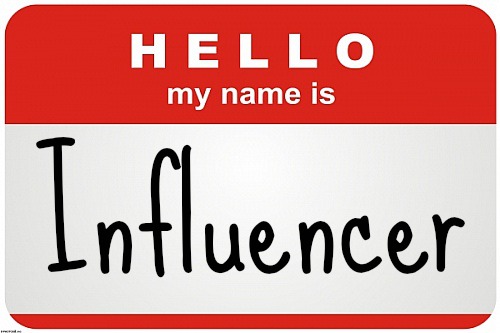
COM 210 – THEORIES OF PERSUASION The course that teaches you how to get exactly what you want!
March 6, 2018
Have you always seen yourself as an influencer? Have you ever wanted people to follow your every move? To listen to you? To accept you? Or even to just say “YES!” to any ethical request?
Well, this School of Communication requirement course will teach you exactly how you can become an influencer in your everyday life. It will teach you the theories about how exactly to influence customers, fans, followers and even your friends in a way that can also speak to and benefit them.
Not only will this class teach you how to shape others’ attitudes, behaviors and beliefs, but it will also give you amazing skills that can help you in your field of work post-graduation and in everyday facets of life.

A powerful quote by Shiv Khera
Here are ten takeaways you can expect to learn and use from Theories of Persuasion:
- How to alter attitudes, beliefs, values, and motives
- Utilize persuasive strategies in any corporate context
- Ability to think critically
- Construct effective persuasive messages
- Implementation of ethos (appeal to ethics), pathos (appeal to emotion), and logo (appeal to logic) in persuasive messaging
- How to work effectively in teams
- How to attribute motives and actions to others and ourselves, which affects our interpretations of the situation
- Be able to modify peoples anchors, or stance, on particular topic message
- Discover how the specific targets of persuasive messages use mental processes of motivation and reasoning
- MAKE MONEY WITH PERSUASIVE TACTICS!
Following is a video on the Science of Persuasion:
Real Life scenarios-
Now you may be wondering, “How will this class help me after I graduate from school and have to join the workforce?” Well, The video above does a great job of defining the areas persuasion can be used in real life scenarios outside of the classroom setting.
As prospective students you may be more worried about how this will deliver on building the necessary skills of persuasion that will benefit everyday facets of life. As the video above embraces scenarios like: getting a favor from a colleague, effective campaigning, higher sales and much more. Persuasion should be looked at as an incredibly important skill for any job or scenario. Marketers and advertisers use persuasive messaging to get consumers to buy products. Communications departments use persuasive messaging to get their target audiences to perform a certain task, change a belief they may have, or even stop a behavior that is harmful to themselves. A multitude of other jobs and fields use these same skills, too.
Theories of Persuasion at Chapman University will provide the ability to implement the six universal shortcuts (Reciprocity, Scarcity, Authority, Consistency, Liking and Consensus) by Dr. Robert Cialdini, as well as many other theories into class projects and campaigns which you can add to your professional portfolio and resume, all while having fun and playing games in class. This course can be seen as the building blocks to all other courses and eventually jobs you will be taking.
So hopefully this blog post influenced you to say “YES!” to taking this course.

